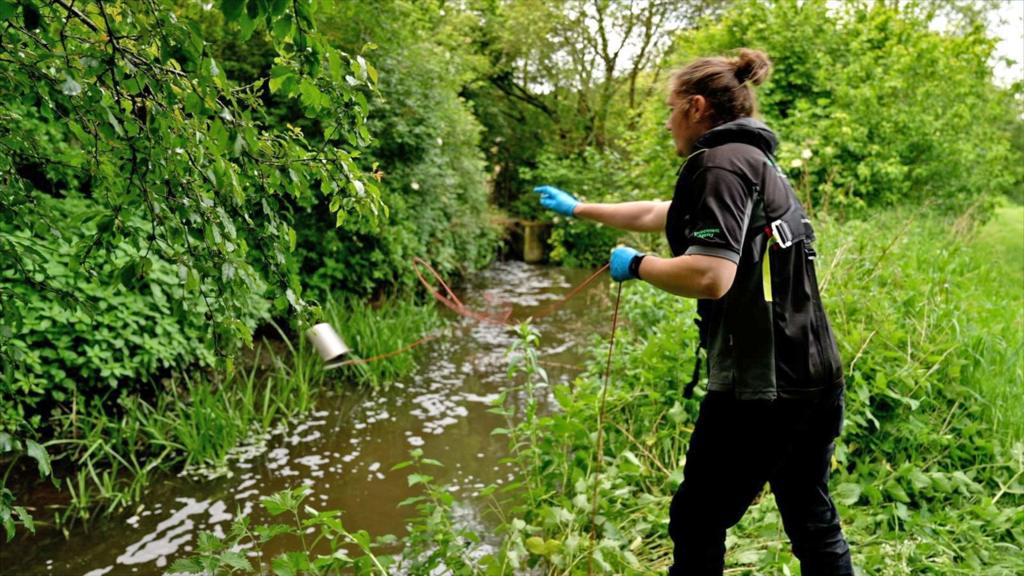“`html
Thousands of water quality tests, designed to detect potentially harmful pollutants in England’s rivers, lakes, and estuaries, have been cancelled in the past three months due to staff shortages, according to BBC reporting.
The Environment Agency (EA) confirmed the cancellations after campaigners provided internal emails and documents revealing plans for significant reductions in monitoring programs.
The affected tests are for inorganic pollutants, including substances such as nitrates and phosphates, which can indicate sewage or agricultural runoff.
While the EA maintains that its testing program “remains robust,” a recent, highly anticipated report stated that the agency has “struggled to effectively oversee and manage the water system.”
The water regulator acknowledged that 10,000 scheduled tests at its primary laboratory in Starcross, Devon, were not conducted between May and July due to staffing deficits.
Other tests were either combined with existing analyses or postponed as part of what the EA described as an “optimization” process.
The Environment Agency indicated that seven national inorganic testing programs have been entirely “paused.” These include initiatives that monitor chemical pollution in rivers, lakes, and estuaries, along with a program that tracks the regulator’s drought management strategies.
Jo Bradley, a former member of the Environment Agency’s water quality team with over 20 years of experience, explained to the BBC: “Some inorganic substances, such as copper and zinc, are directly toxic to aquatic organisms, including fish and insects.”
“Others, such as phosphorus and nitrogen, are nutrients, and they can adversely affect river health when present in high quantities.”
“These substances must be tested routinely, at many hundreds of locations, to identify trends in river chemistry and promptly detect any emerging problems.”
The EA stated that it “paused” 17.5% of its inorganic testing at the Starcross Laboratory between May and July.
The agency anticipates operating at 15% below capacity for the entire year.
An EA spokesperson attributed the decrease in testing to “fluctuations in staffing capacity” and projected that the laboratory would be operating at full capacity by October.
Staffing issues are not new to the EA. In 2023, Chairman Alan Lovell informed Parliament that the agency had “struggled with recruitment and retention of staff.”
Internal emails, obtained by campaign groups Greenpeace and Desmog through Freedom of Information requests and shared with the BBC, reveal EA officials discussing the impact of staff departures on testing programs, noting that further departures were anticipated.
In an email to colleagues, one senior official described the situation as “not good news I’m afraid,” adding, “this isn’t where we want to be (again).”
Helen Nightingale, a former catchment planner at the Environment Agency who analyzed data from its water quality program until 2022, observed a shift in focus away from thorough investigation and towards identifying “successes” during her tenure.
She also noted low morale: “The pay is not great – we didn’t have pay rises for years due to austerity,”
“But a lot of people are in it [the EA] because they want to make a difference – and when you’re not even getting that – well, what’s the point?”
Documents reviewed by the BBC indicate that the affected work included investigations into the water industry in various regions and monitoring of protected areas, including the River Wye, which is currently facing a pollution crisis linked to intensive poultry farming.
Stuart Singleton White of the Angling Trust, which has been conducting its own citizen scientist testing program, stated: “This spring, while the EA cut 10,000 water samples, our Water Quality Monitoring Network collected its 10,000th.”
“Our latest annual report showed that 34% of sites breached ‘good ecological status’ for phosphate, and 45% showed signs of nitrate pollution. Pollution is out of control, and extensive testing is key to addressing the problem.”
Singer-turned-campaigner Feargal Sharkey asserted that the cancelled tests further highlight the EA’s limitations.
“When is a regulator not a regulator? When it’s the Environment Agency,” Sharkey told the BBC.
“With impeccable timing, the Environment Agency reminds us all of exactly why they should be added to Sir Jon Cunliffe’s bonfire of the quangos [the Water Commission]. Institutionally incompetent, complacent, and discredited.”
This week, Sir Jon recommended the creation of a single water regulator, with the EA relinquishing responsibility for monitoring water pollution.
An EA spokesperson stated: “We are committed to protecting the environment, and water quality testing remains a top priority, having received an extra £8m in funding.”
“Our water quality testing program remains robust and prioritized on the basis of need – only a small proportion of tests were impacted by this issue, with no impact on pollution incidents and bathing water testing.”
A Cumbrian project is selected as a finalist in the Thiess International river prize awards.
Hundreds of people attend a flood information event in a town regularly hit by river flooding.
Seals often get the toys trapped around their necks, causing pain, disease and even death.
Environment Agency warnings remain in place against sea swimming at five locations in Kent.
A Cornwall charity says it had to withdraw an application as most funds would be paid in arrears.
“`

